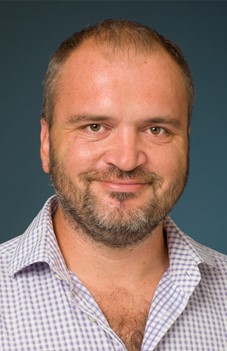Aired: Friday, April 29th – 1 PM ET
SPEAKER: Andrew Dimitrijevic, PhD, Research Director of the Cochlear Implant Program at Sunnybrook Health Sciences Centre. Associate Professor University of Toronto, Dept. Otolaryngology and Physiology.
, CAA Members View the Recording - log in to viewAbstract:
Understanding the neural mechanisms of listening effort has become a “hot topic” in recent years at both clinical and basic science research levels. Clinicians have a vested interest in understanding listening effort since most of their clients seek help to resolve effortful listening to speech in real-world environments. From a basic science perspective, understanding how the brain encodes, decodes sounds and generates a subjective percept is of profound interest with applications well beyond audiology.
In this webinar we will summarize how we characterize listening effort and some physiological measures including reaction times, pupillometry, functional magnetic resonance imaging (fMRI) and electroencephalography (EEG). Special emphasis will be placed on EEG since, in my opinion, this is the most direct brain measure of listening effort. The webinar will draw upon reports of typical hearing and hearing-impaired populations including those with hearing aids and cochlear implants. Although there is still much work to be done in this relatively young field, the attendees will appreciate that listening effort is a phenomenon that can be quantified with neural metrics. Listening effort is part of many different scales/subscales of Quality of Life. Attendees will also learn that there are emerging methods to quantify Quality of Life and how we need to move beyond the audiogram to get a more complete picture of hearing.
Learning Points:
1. How can we quantify listening effort using objective measures?
2. What types of EEG signals should we look for, how do we extract these measures?
3. Can we quantify Quality of Life using neural measures?
SPEAKER BIO: Andrew Dimitrijevic, PhD, Research Director of the Cochlear Implant Program at Sunnybrook Health Sciences Centre. Associate Professor University of Toronto, Dept. Otolaryngology and Physiology.
Dr. Dimitrijevic’s work focuses on using EEG measures to understand the neural mechanisms of hearing and how hearing loss affects sensory and cognitive processing. Current themes of research include listening effort, neural metrics of quality of life, cognitive systems in audition, and neural-based rehabilitation in people with cochlear implants. Dr. Dimitrijevic completed his PhD at the University of Toronto under the supervision of Dr. Terrence Picton. His PhD examined how ASSRs (auditory steady-state responses) can be used in to objectively quantify degree of hearing loss. After his PhD, Dr. Dimitrijevic worked with Dr. David Stapells at UBC as a postdoc studying neural metrics of spatial hearing. Soon after, Dr. Dimitrijevic travelled to University of California, Irvine to work with Dr. Arnold Starr to develop objective measures in people with Auditory Neuropathy. In 2012 Dr. Dimitrijevic started a scientist position at Cincinnati Children’s Hospital Medical Centre and since 2016, Dr. Dimitrijevic has been at Sunnybrook as Research Director of the Cochlear Implant Program. www.cibrainlab.com
, CAA Members View the Recording - log in to view


